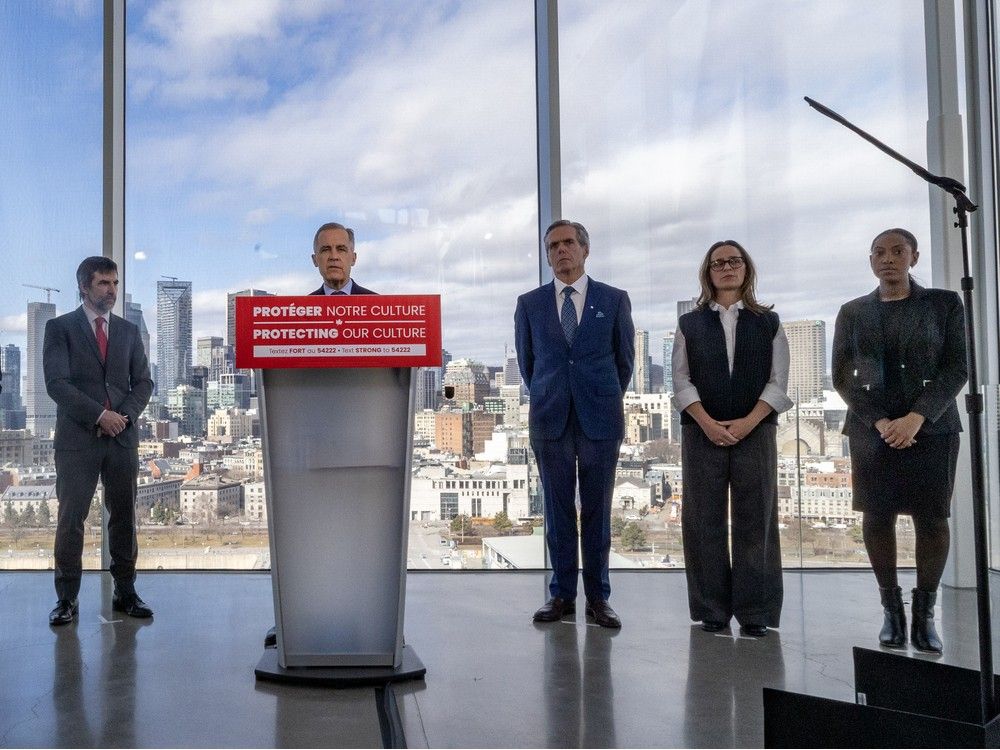
OTTAWA — When Elections Canada certified the Liberals’ victory by a single vote in the Quebec riding of Terrebonne, senior party officials were stunned.
“This wasn’t in our forecast. We didn’t think she would win,” admitted a Liberal source about the party’s candidate,
Tatiana Auguste, the 24-year-old who thought she had lost the constituency.
Auguste was initially declared the winner on election night, but she later lost the riding to Bloc Québécois incumbent Nathalie Sinclair Desgagné, who attended her party’s first caucus meeting last week, before winning it again by a single vote after a judicial recount.
“I’ve been on an emotional roller coaster, but I’m really happy,” Auguste said in multiple media interviews. But for Quebec Liberal organizers, her victory showed how much the big red Liberal machine has outperformed in the province.
In the end, the Liberals won 44 of the 78 ridings, double the Bloc’s 22 seats in the House of Commons. Before the recount in Windsor—Tecumseh—Lakeshore and Terra Nova—Les Péninsules and Milton East—Halton Hills South, Terrebonne, and numerous surprise victories in Quebec, brought the Liberals to 170 seats, two short of a majority.
Terrebonne hadn’t voted Liberal in 45 years. The same goes for Trois-Rivières. The last time the Liberals won Abitibi—Baie-James—Nunavik—Eeyou was in 2000, and they had never won Beauport—Limoilou in Quebec City since its creation in 2004.
They won all four of them.
“It’s surprising. Absolutely… I’ve always been skeptical because these are often ridings that have promised the Liberals but often failed to deliver,” said Jeremy Ghio, a former advisor to minister Mélanie Joly and a strategist at Tact Conseil.
“These have always been regions in which the Liberals had high expectations and ultimately suffered disappointment at the end of the campaign,” he added.
Ghio and many Quebec Liberal sources believe Prime Minister Mark Carney will have to give significant roles to the province’s representatives and bring fresh Quebec faces at the cabinet table.
For instance, people suggested to the prime minister’s entourage that Mandy Gull-Masty, who was recently the Grand Chief of the Grand Council of the Crees/Cree Nation Government before winning Abitibi—Baie-James—Nunavik—Eeyou, should be named in cabinet.
“Without her, we wouldn’t have won Abitibi, it’s that simple,” a source told National Post.
Ghio believes it is time for the prime minister to appoint longtime Quebec MP Joël Lightbound to Cabinet after his resounding majority in Louis-Hébert.
“You need a minister in Quebec City. And it’s time for Lightbound to join the cabinet. He worked his riding. He broke rank during the Trudeau years. He is not associated with Trudeau,” said Ghio.
During the campaign, the Liberal team deployed key ministers like Mélanie Joly, François-Philippe Champagne, and Steven Guilbeault in more than ten ridings where the party thought it had a chance of success.
As the campaign progressed and fears of U.S. President Donald Trump crystallized, ridings like Trois-Rivières were no longer just a fantasy. They became targets and a necessity to help the Liberals secure a majority.
Another riding outside Montreal, Repentigny, was also in the Liberals’ sights, but they lost to former Greenpeace activist and Bloc Québécois candidate Patrick Bonin, who won a majority of 2,000 votes.
“We shook thousands of hands, and I think a strong base of Bloc electors stayed home and voted for us,” said Bonin as he was entering his first caucus meeting on Parliament hill, last week.
Yet her predecessor, Monique Pauzé, won the 2021 election with a majority of 14,000 votes and was first elected in 2015, when the party only had 10 candidates elected to the House of Commons.
Repentigny has already been represented by the NDP after the historic orange wave of 2011, but the riding is a Bloc stronghold, as is Terrebonne, where Sinclair-Desgagné won by more than 6,000 votes in 2021.
The Bloc Québécois’s new House leader, Christine Normandin, called the campaign “atypical” and felt on the ground that the Liberals gained ground every time they used Trump as a pawn.
“What we heard on the ground is that if people hesitated it was really out of fear and certainly not a disavowal of the work we did because we heard very very very clearly that the work of the Bloc Québécois is appreciated,” she said.
Some of his colleagues seemed irritated by the Liberal gains in their strongholds. During the campaign, they argued that Bloc candidates were winning local debates and that the Liberals were often absent or ignorant of local issues.
Today, some in the Bloc are talking about a “borrowed seat” in Terrebonne, but also in other ridings north of Montreal where the Liberals have made gains.
“We can never take an election for granted, even if the polls initially show us winning. Our job is really to make sure we give everything we have in the election campaign, and this time was no exception,” Normandin said.
National Post
atrepanier@postmedia.com
Our website is the place for the latest breaking news, exclusive scoops, longreads and provocative commentary. Please bookmark nationalpost.com and sign up for our newsletters here.
